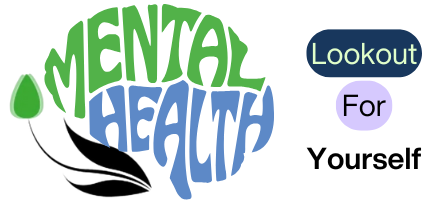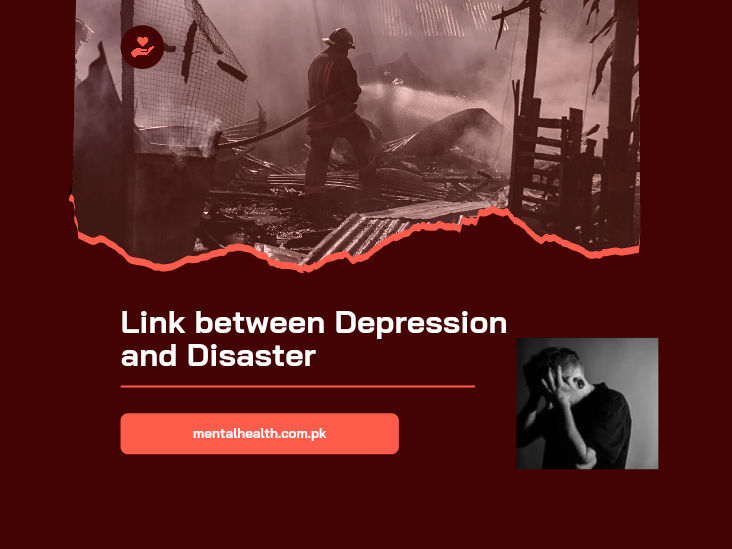Link between Depression and Disaster
Here in this post, we are providing “Link between Depression and Disaster”. You can discuss your concerns about mental health in our community, and we will provide you with tips and solutions in a short time. Keep visiting Mental Health.
Depression and Disaster
As the effects of climate change intensify, so will the consequences for people’s mental health.
There has been an avalanche of increasingly catastrophic extreme weather occurrences over the last few years, which have become more regular as a result of the global climate catastrophe.

It’s only logical that these tragic events would have an impact on our mental health, but few studies have looked at the full picture of the connection between disasters and mental health. Another study on the relationship between climate change and mental health, however, may fill in some critical data gaps.
People who live in disaster-stricken areas are more likely to suffer from depression, according to the study in South Africa.
Researchers in South Africa drew two frightening conclusions after studying the data of almost 17,000 people: depression and tragedy.
There was a “significant” link between exposure to disasters at an early age and the beginning of depression. To put it another way, those who witnessed the accident were more likely to suffer from depression than those who were not.
Experiencing many disasters may worsen mental health or make people more vulnerable to the consequences of following disasters, according to this theory.
Secondly, vulnerable groups such as low-income and black South Africans, as well as women and those with less formal education, were often at the highest risk of being targeted. However, disasters and sadness were found to be equally prevalent in both men and those with better incomes and educational backgrounds, according to the research.
Community calamities have a detrimental influence. People who are “chronically socially fragile” may be more affected by this.
Sadly, poverty and gender inequality persist in South Africa, leaving women and Black Africans with fewer means to “psychologically cope with the consequence of calamities.”
When it comes to climate change and sustainable development, “there is not enough focus or evidence that speaks to the mental health impact of community disasters in sub-Saharan Africa,” says a researcher.
Disasters and their effects on society in Africa may be underestimated, thus research like this is essential to fully evaluate the implications of disasters on communities on the continent as climate change accelerates. [source: IFPRI study]. New research focuses on vulnerable ethnic and economic groups in places that are frequently disregarded in climate change debates.
Health care systems in Africa may be exacerbated by the “possibly greater number and severity of natural disasters in Africa than elsewhere.”
Findings from this study could have ramifications not only for drought- and flood-prone South Africa, but for the rest of the world as well. An increase in extreme weather occurrences is being attributed to global warming by the Intergovernmental Panel on Climate Change (IPCC) in 2021, and recent research suggest climate fear is becoming a big issue, particularly among young people.
Data on climate change-related disasters and mental health disorders like depression will become increasingly important as an increasing number of people throughout the world are affected by its consequences.
According to the study’s findings, “ecological distress, a form of psychological suffering associated with current or expected ecological change, cannot be disregarded.”
Between 2008 and 2017, the South African National Income Dynamics Study collected data on thousands of people. At the start of the study, all participants were free of depression.
When looking at the 17,000 people studied, over 3,000 of them were involved in some kind of community catastrophe throughout the study period. It might be difficult to discern between natural and man-made disasters, thus researchers chose the phrase “community disaster” instead of “natural disasters.” These include droughts, floods, fires related to agricultural losses, tornadoes and public unrest caused by xenophobia.
Once they had figured out the linkage between catastrophe exposure and depression, the researchers employed statistical models to evaluate how socioeconomic and gender demographics were linked to the development of mental illness.
The scientists emphasise the need for politicians to give catastrophe survivors with “timely access to community-based supportive intervention” and better access to mental health services in primary care settings. As disasters take a greater toll on communities due to the climate problem, offering therapy on an individual basis will not suffice.
[bookly-form category_id=”1″]
Follow

